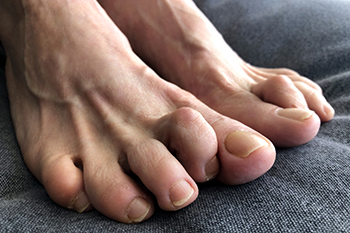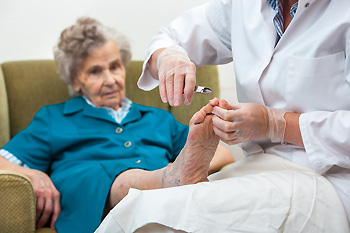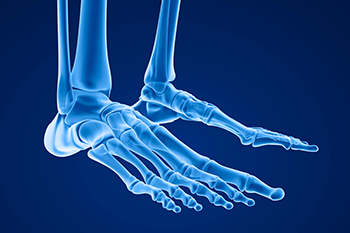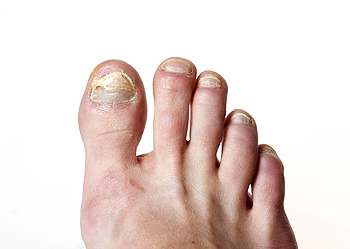Connect With Us
Blog
Items filtered by date: August 2023
Types of Hammertoe Surgery

Early intervention in managing painful hammertoes can prevent the need for surgery. However, for some individuals, surgery may become a viable option. It is important to address underlying factors such as rheumatoid arthritis prior to considering surgery. A number of surgical options are available, depending on the severity or advancement of the hammertoe. Tendon transfer, suitable for flexible hammertoes, involves repositioning tendons to improve alignment and appearance. Joint resection is beneficial for fixed hammertoes. This procedure consists of adjusting ligaments, tendons, and bone portions. Fusion is generally reserved for severe fixed hammertoes that may require this approach. Joint portions are removed to stimulate bone growth and straighten the toe. Toe removal is employed only in rare cases of extreme pain, although it comes with significant considerations. Surgery is often performed as an outpatient and can involve local anesthesia. Strengthening exercises and wearing proper footwear can help to aid in recovery. For guidance on managing a hammertoe, it is suggested that you consult with a podiatrist for treatment options.
Hammertoe
Hammertoes can be a painful condition to live with. For more information, contact one of our podiatrists from New England Foot and Ankle. Our doctors will answer any of your foot- and ankle-related questions.
Hammertoe is a foot deformity that affects the joints of the second, third, fourth, or fifth toes of your feet. It is a painful foot condition in which these toes curl and arch up, which can often lead to pain when wearing footwear.
Symptoms
- Pain in the affected toes
- Development of corns or calluses due to friction
- Inflammation
- Redness
- Contracture of the toes
Causes
Genetics – People who are genetically predisposed to hammertoe are often more susceptible
Arthritis – Because arthritis affects the joints in your toes, further deformities stemming from arthritis can occur
Trauma – Direct trauma to the toes could potentially lead to hammertoe
Ill-fitting shoes – Undue pressure on the front of the toes from ill-fitting shoes can potentially lead to the development of hammertoe
Treatment
Orthotics – Custom made inserts can be used to help relieve pressure placed on the toes and therefore relieve some of the pain associated with it
Medications – Oral medications such as anti-inflammatories or NSAIDs could be used to treat the pain and inflammation hammertoes causes. Injections of corticosteroids are also sometimes used
Surgery – In more severe cases where the hammertoes have become more rigid, foot surgery is a potential option
If you have any questions please contact one of our offices located in Chelmsford and Newburyport, MA . We offer the newest diagnostic and treatment technologies for all your foot and ankle needs.
It's Time for Beautiful Feet
Foot Care Tips for Seniors

Properly caring for aging feet is crucial for maintaining a senior's health. Wearing properly fitted shoes, washing and moisturizing the feet daily, and conducting regular foot checks are all essential practices. Trimming the nails is also important, as well as seeking assistance from caregivers, family members, or other professionals for help if needed. Minimizing foot injuries is vital to prevent further issues. Participating in regular exercise will also keep the feet in good condition. Embracing nutritious diets promotes overall health. Resting the feet and avoiding high heels can further safeguard them. Special care is needed for seniors with diabetes to prevent complications. If you are a senior or you take care of one, it is suggested that you make an appointment with a podiatrist to obtain daily professional care.
If you need your feet checked, contact one of our podiatrists of New England Foot and Ankle. Our doctors will attend to all of your foot and ankle needs and provide you with quality treatment.
Geriatrics and Podiatry
When people age, some common issues that may occur are bone density loss, dry skin, poor circulation, and rough brittle nails. These issues may also affect your foot health if the necessary steps are not taken to alleviate the problems.
It is important to take care of your feet because feet that are injured or diseased can affect your overall health. Having painful feet hinders your ability to do daily activities or may decrease your willingness to do the things that you need to do.
Visiting Your Geriatrician
As we age, health problems become more likely, so it is essential to visit your doctor for check-ups to ensure that you are doing the best you can to take care of your health. It is recommended to check your feet frequently for any possible cuts, bruises, swelling, corns or any other irregularities.
Taking Care of Elderly Feet
Cracked or dry feet can be treated by applying moisturizer often. It is also important not to wear old socks because the older the sock is, the higher the possibility there will be that there is bacteria there. Wear fresh socks and make sure they fit properly.
Proper foot health means that you can have a more active lifestyle and you will not be bogged down by pain. Foot health also leads to good circulation, which is paramount for overall health.
If you have any questions, please feel free to contact one of our offices located in Chelmsford and Newburyport, MA . We offer the newest diagnostic tools and technology to treat your foot and ankle needs.
Understanding Gout and Identifying Risks and Effective Treatments

Gout is a form of inflammatory arthritis caused by excess uric acid in the blood, leading to the formation of urate crystals in the joints. These sharp crystals trigger sudden, severe pain, redness, and swelling, commonly affecting the big toe. Anyone can develop gout, but certain factors can increase the risk. Men are more susceptible to getting gout than women, and individuals with a family history of gout have a higher likelihood of developing this condition. Lifestyle choices such as consuming a diet rich in purines, excessive alcohol intake, obesity, and certain medications can also contribute to gout. There are effective treatments that aim to alleviate pain during attacks and prevent future flare-ups. Nonsteroidal anti-inflammatory drugs, corticosteroids, and colchicine are commonly prescribed to manage gout symptoms. Long-term management involves lifestyle modifications, including dietary changes, weight loss, and limiting alcohol consumption. With proper management and awareness of risk factors, individuals with gout can lead healthier, more comfortable lives. If you have gout attacks, it is strongly suggested that you are under the care of a podiatrist who can help you to deal with this condition.
Gout is a foot condition that requires certain treatment and care. If you are seeking treatment, contact one of our podiatrists from New England Foot and Ankle. Our doctors will treat your foot and ankle needs.
What Is Gout?
Gout is a type of arthritis caused by a buildup of uric acid in the bloodstream. It often develops in the foot, especially the big toe area, although it can manifest in other parts of the body as well. Gout can make walking and standing very painful and is especially common in diabetics and the obese.
People typically get gout because of a poor diet. Genetic predisposition is also a factor. The children of parents who have had gout frequently have a chance of developing it themselves.
Gout can easily be identified by redness and inflammation of the big toe and the surrounding areas of the foot. Other symptoms include extreme fatigue, joint pain, and running high fevers. Sometimes corticosteroid drugs can be prescribed to treat gout, but the best way to combat this disease is to get more exercise and eat a better diet.
If you have any questions please feel free to contact one of our offices located in Chelmsford and Newburyport, MA . We offer the newest diagnostic and treatment technologies for all your foot and ankle needs.
Understanding,Stress Fractures of the Foot

A foot stress fracture is a hairline crack in a bone caused by repetitive stress or overuse. This common injury primarily affects the weight-bearing bones of the foot, such as the metatarsals. Athletes, runners, and those who engage in high-impact activities are particularly susceptible. Common symptoms of a stress fracture of the foot can include a gradual onset of pain that worsens during activities and eases with rest. Swelling surrounding the affected area often accompanies a stress fracture, it may be tender when touched. Some people that develop stress fractures may notice bruising near the fracture site, and it can be difficult to walk. The pain often subsides with rest but can return when activities resume. Early diagnosis is crucial in preventing further damage. Treatment typically involves rest, immobilization with a cast or brace, and modified activity. In severe cases, surgery may be necessary. It is suggested that you consult with a podiatrist if you have developed a stress fracture.
Stress fractures occur when there is a tiny crack within a bone. To learn more, contact one of our podiatrists from New England Foot and Ankle. Our doctors can provide the care you need to keep you pain free and on your feet.
How Are They Caused?
Stress fractures are the result of repetitive force being placed on the bone. Since the lower leg and feet often carry most of the body’s weight, stress fractures are likely to occur in these areas. If you rush into a new exercise, you are more likely to develop a stress fracture since you are starting too much, too soon. Pain resulting from stress fractures may go unnoticed at first, however it may start to worsen over time.
Risk Factors
- Gender – They are more commonly found in women compared to men.
- Foot Problems – People with unusual arches in their feet are more likely to develop stress fractures.
- Certain Sports – Dancers, gymnasts, tennis players, runners, and basketball players are more likely to develop stress fractures.
- Lack of Nutrients – A lack of vitamin D and calcium may weaken the bones and make you more prone to stress fractures
- Weak Bones – Osteoporosis can weaken the bones therefore resulting in stress fractures
Stress fractures do not always heal properly, so it is important that you seek help from a podiatrist if you suspect you may have one. Ignoring your stress fracture may cause it to worsen, and you may develop chronic pain as well as additional fractures.
If you have any questions, please feel free to contact one of our offices located in Chelmsford and Newburyport, MA . We offer the newest diagnostic and treatment technologies for all your foot care needs.
Heel Pain Can Be Treated!
Prevention Methods for Toenail Fungus

Toenail fungus is generally not a serious foot condition despite its unsightly appearance. Toenail fungus thrives in warm and moist environments, such as public swimming pools, locker rooms, and similar areas. The fungus can enter the body through small cracks in the skin of the feet, so it is beneficial to wear appropriate shoes while in these areas. People who have diabetes, immune system disorders, or nerve damage may be prone to developing toenail fungus. Symptoms can include a thickening of the nail, a change in the nail shape, and in severe cases, the nail may lift or crumble. Prevention methods can include refraining from sharing shoes, towels, and socks, and it is helpful to maintain good foot care. If you have developed toenail fungus, it is strongly suggested that you confer with a podiatrist who can effectively treat this condition, which may include prescribed medication.
If left untreated, toenail fungus may spread to other toenails, skin, or even fingernails. If you suspect you have toenail fungus it is important to seek treatment right away. For more information about treatment, contact one of our podiatrists of New England Foot and Ankle. Our doctors can provide the care you need to keep you pain-free and on your feet.
Symptoms
- Warped or oddly shaped nails
- Yellowish nails
- Loose/separated nail
- Buildup of bits and pieces of nail fragments under the nail
- Brittle, broken, thickened nail
Treatment
If self-care strategies and over-the-counter medications does not help your fungus, your podiatrist may give you a prescription drug instead. Even if you find relief from your toenail fungus symptoms, you may experience a repeat infection in the future.
Prevention
In order to prevent getting toenail fungus in the future, you should always make sure to wash your feet with soap and water. After washing, it is important to dry your feet thoroughly especially in between the toes. When trimming your toenails, be sure to trim straight across instead of in a rounded shape. It is crucial not to cover up discolored nails with nail polish because that will prevent your nail from being able to “breathe”.
In some cases, surgical procedure may be needed to remove the toenail fungus. Consult with your podiatrist about the best treatment options for your case of toenail fungus.
If you have any questions, please feel free to contact one of our offices located in Chelmsford and Newburyport, MA . We offer the newest diagnostic and treatment technologies for all your foot care needs.
Blog Archives
- April 2025
- March 2025
- February 2025
- January 2025
- December 2024
- November 2024
- October 2024
- September 2024
- August 2024
- July 2024
- June 2024
- May 2024
- April 2024
- March 2024
- February 2024
- January 2024
- December 2023
- November 2023
- October 2023
- September 2023
- August 2023
- July 2023
- June 2023
- May 2023
- April 2023
- March 2023
- February 2023
- January 2023
- December 2022
- November 2022
- October 2022
- September 2022
- August 2022
- July 2022
- June 2022
- May 2022
- April 2022
- March 2022
- February 2022
- January 2022
- December 2021
- November 2021
- October 2021
- September 2021
- August 2021
- July 2021
- June 2021
- May 2021
- April 2021
- March 2021
- February 2021
- January 2021
- December 2020
- November 2020
- October 2020
- September 2020
- August 2020
- July 2020
- June 2020
- May 2020
- April 2020
- March 2020
- February 2020
- January 2020
- December 2019
- November 2019
- October 2019
- September 2019
- August 2019
- July 2019
- June 2019
- May 2019
- April 2019
- March 2019
- February 2019
- January 2019
- December 2018
- November 2018
- October 2018
- September 2018
- August 2018
- July 2018
- June 2018
- May 2018
- April 2018
- March 2018
- February 2018
- January 2018
- December 2017
- November 2017
- October 2017
- September 2017
- August 2017
- July 2017
- June 2017
- May 2017
- April 2017
- March 2017
- February 2017
- March 2016


